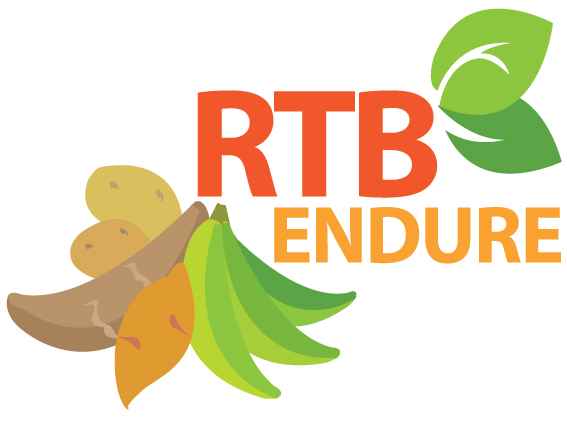
Expanding utilization of roots, tubers and bananas and reducing their postharvest losses
Gender Strategy
Why a gender strategy?
In Uganda, gender roles in RTB crops' production, processing and marketing are often complex. Key decisions on banana cultivation and marketing are made by men though women provide labour at various production stages. Men dominate wholesale trade while, in most cases, women are in charge of retailing. This is similar to what happens in potato production and marketing in eastern Uganda where women's labour is crucial to production while men control the harvesting and marketing of potatoes. While sweetpotato and cassava may largely be seen as "women's crops", it has been noted elsewhere that as farmer access to markets improves or as better processing technologies become available, men tend to take over responsibilities for roles that had previously been largely the domain of women (RTB Gender Strategy, 2013). It has also been noted that men are more likely to adopt new technologies, especially if they are capital intensive. Furthermore, findings from the GENNOVATE studies reveal that social norms in Uganda may also prevent women from adopting new technologies. For example, women may not have equitable access to training, land and income which are critical to the adoption of new technologies or may not be sufficiently empowered to make investment decisions at household level. This implies that if gender issues are not taken into due account, interventions aiming at value chain development and upgrading may preclude women from taking full advantages of the emerging market opportunities, or even affect them negatively.It is therefore necessary that attention is given to promote gender empowerment in the effort to develop and strengthen RTB value chains. The empowerment of women and men implies increased power and control over their own lives. It involves awareness-raising, building self-confidence, expansion of choices, increased access to and control over resources and actions to transform the structures and institutions which reinforce and perpetuate gender discrimination and inequality. As such, RTB-ENDURE has developed a gender strategy (nested within the RTB Gender Strategy) and established a gender team in charge to develop a Gender Action Plan (GAP) and to guide the project implementation so as to ensure that men and women (as well as youth) benefit from the interventions.Objectives of the gender strategy
- Sensitize implementing partners about the importance of gender mainstreaming in the design and implementation of value chain interventions;
- Ensure comprehensive understanding of the of the gender dynamics involved in planning project interventions;
- Support the implementing teams and, possibly, suggest corrective measures in order to ensure that both men and women benefit from the project;
- Monitor and assess the impact of the project on men and women;
- Conduct postharvest and value chain gender research and disseminate the results through publications and presentations in seminars and symposia;
- Validate gender responsive value chain tools recently developed/adapted by RTB and its partners.
How do we make it happen?
- By strengthening the capacities of implementing partners and students in integrating gender into research processes through training, coaching and mentoring;
- By providing technical backstopping to the sub-project teams to ensure that interventions positively impact both men and women;
- By conducting gender analysis of target value chains and selected postharvest processes and technologies;
- By carrying out baseline and endline studies for monitoring and assessing the impact of the project on women;
- By testing, validating and refining gender analytical tools to support design, implementation and impact assessment of gender responsive postharvest and value chain interventions.